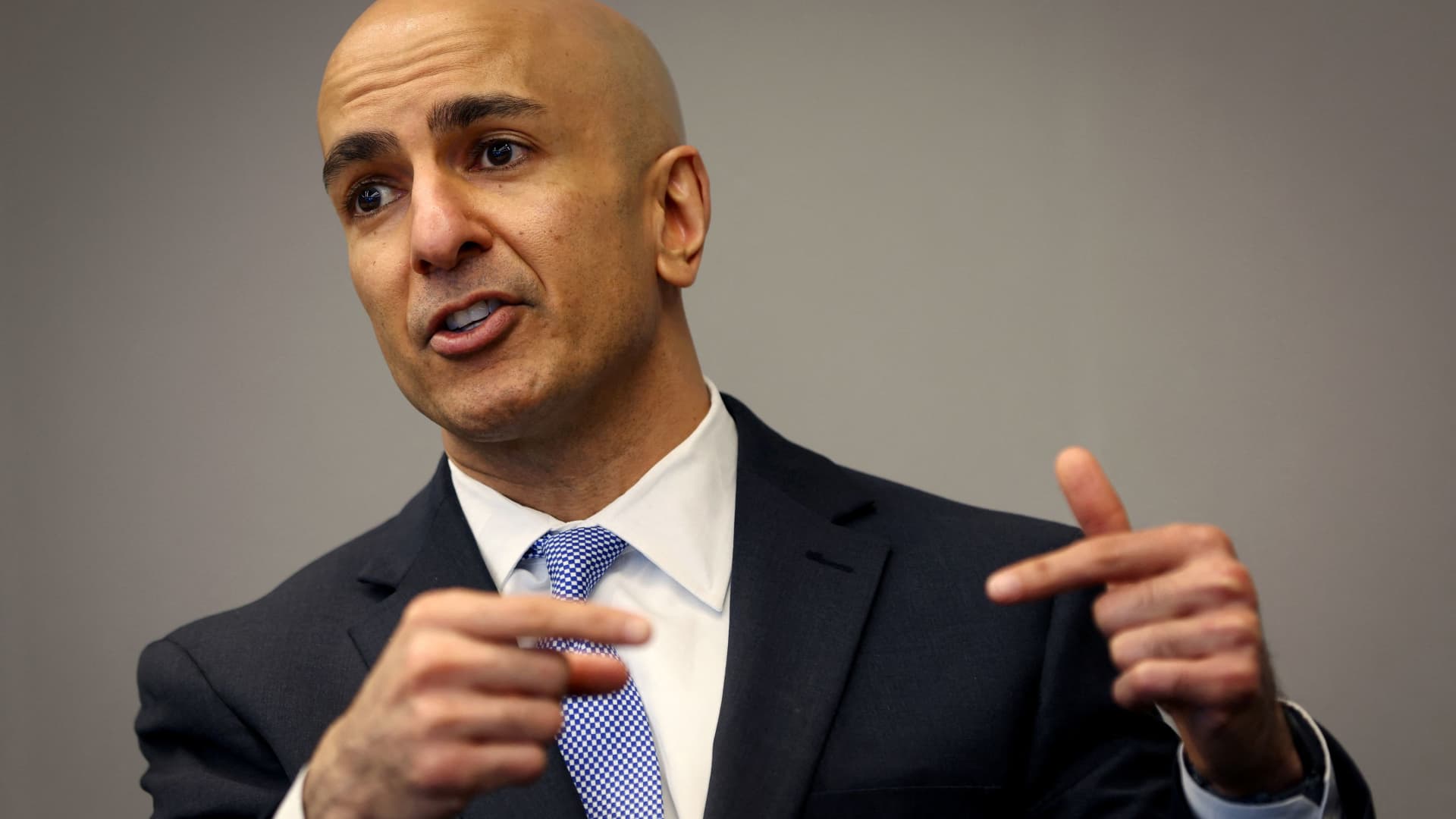Minneapolis Federal Reserve President Neel Kashkari said Wednesday he’s unsure whether the central bank has raised interest rates enough to tame inflation.
Speaking one day after he penned an essay suggesting that rates may have to go “meaningfully higher” from here in order to bring down prices, Kashkari told CNBC that the neutral rate of interest, or one that is neither holding back the economy nor stimulating it, may have moved higher.
“I don’t know,” he said on “Squawk Box” when asked whether the current target range for the federal funds rate of 5.25%-5.5% is “sufficiently restrictive” to bring inflation back to the Fed’s 2% goal. “It’s possible given the dynamics or the reopening of the economy, that the neutral rate may have moved up.”
Some of his concerns stem from the fact that sectors of the economy that normally are affected by rate hikes seem to be ignoring them.
“So one thing that makes me cautious that we might not be as restrictive as we think, is that consumer spending has remained robust, GDP growth continues to outperform,” Kashkari said. “The two sectors of the economy that are traditionally most sensitive to interest rate hikes, autos and housing, have both added some signs of bottoming and in some cases are starting to show some recovery that makes me cautious that we might not be as restrictive as we otherwise would think.”
Those comments come one week after the rate-setting Federal Open Market Committee, of which Kashkari is a voting member this year, opted not to raise interest rates but still signaled another quarter-point hike before the end of the year while cutting its outlook to two reductions next year, half the last projection in June.
Wall Street has been fearful that the continuing tightening of monetary policy could send the economy into recession.
But Kashkari insisted that is not the Fed’s goal.
“If we have to keep rates higher for longer, it’s because the economic fundamentals are even stronger than I appreciate and the [economic] flywheel is spinning,” he said. “It isn’t obvious to me that that means that a recession is more likely, it just might mean that we need a higher rate path to get inflation back down to 2%.”
However, he said “we just don’t know right now” whether the Fed has done enough, adding that “we all want to avoid a hard landing” for the economy.





















Discussion about this post